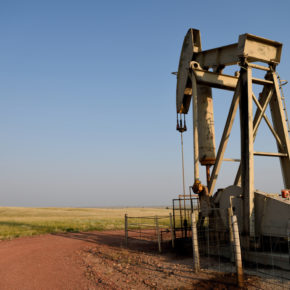
Posted on: 08. 10. 18
When farming gases, most people really think only of natural gas as one material with a single makeup. When a microscope is placed on the industry, it quickly becomes clear that there are several different makeups of natural gas.
Pro-Gas, LLC believes in educating our customers on different makeups of gas because it will only make the use of the services we provide that much more successful.
One of the recently popular types of gas that we feel needs to be understood better for production is Shale gas. Here are answers to some of the most frequently asked questions about this type of gas.
1. What is Shale Gas?
Shale gas is a form of natural gas that is delivered to households across the nation and provides energy to our everyday routines. This natural gas is mostly made up of methane and is found in shale formations. These formations are usually found at the bottom of bodies of water and were formed around 300 million years ago.
In the United States, Shale gas can be found at many different “plays” across 16 different states. These plays can also provide oil and other gas resources.
2. What is the Production Process of Shale Gas?
Shale gas is a material that has been taken from shale rock through the process of hydraulic fracturing, AKA, “fracking.” Fracking is a method that has been used for several decades and is responsible for helping to produce trillions of cubic feet of natural gas as well as 7 billion barrels of oil, according to the American Petroleum Institute.
3. What Makes Shale Gas So Important?
Shale gas is extremely beneficial when examining its impact on consumer prices and the general use of natural gas. Shale gas is actually used for a good chunk of America’s electricity and gas appliances.
The industry for Shale gas has also created over 2 million jobs for Americans and generally pays out well. Not only does Shale gas provide jobs for our nation, but it also makes a large financial contribution to the nations GDP.
4. How is This Type of Gas Regulated?
Shale gas is regulated like all other gases that produce greenhouse gas. Methane emissions are a huge environmental concern due to the impact that they have on climate change. Methane Emissions Reductions Programs have been put in place to help aid in the environmental regulation of natural gas production.
Shale gas is known to be regulated at the federal, state, and local level. However, most often it is the states that play the lead role in the regulation of Shale gas development.
Produce Quality Shale Gas With Products From Pro-Gas, LLC
Shale gas is a material that literally makes our world go round. However, producing the best Shale products can only happen with the most quality equipment for working with natural gas and oil. Pro-Gas, LLC is a provider of the most recent production facility technologies and equipment. Contact us today to find out how our services can help make your oil and natural gas production efforts succeed.


